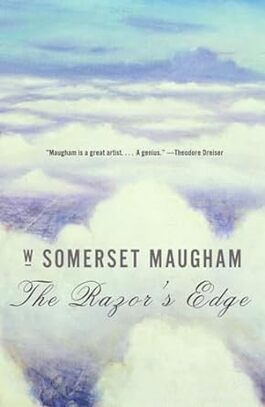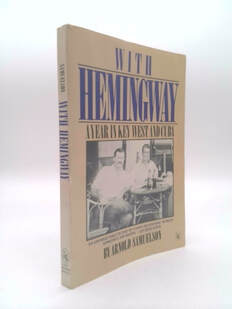|
Here's the dirty little secret of my life as a novelist: I'm terribly read, at least in the realm of fiction. When it comes to nonfiction, poetry, current events, studies about financial inclusion, etc., etc., things look better for me, but fiction is a weak spot in my repertoire. The reason is both simple and counterintuitive: I write fiction. I'm too busy doing what I do to spend as much time as I'd like on what other people do. This year, however, I've decided to dedicate a small part of each day—30 minutes, in the wee hours of the morning—to reading fiction. This means I move slowly. It also means I get to savor something—or live long with the bitter taste, depending on how I'm feeling about my selection. To focus my efforts, I've decided to read works that are generally regarded as classics. This, of course, still leaves a wide field from which to choose, and the criteria for curation are mine alone. My only rigid rule: If one month I read a work by a man, the next month I will read a work by a woman. And vice versa. I also intend to take in diverse work*, in as many forms of diversity as I can. Have a suggestion for me? Drop it here. I have every expectation that this will be a humbling exercise. I'm going to read books I should have read a long time ago, and I'm going to be accountable to myself here, which means I'll be accountable to you. I fully expect to be greeted with incredulous declarations of "you haven't read that book, you philistine?", and I rather think my layman's approach to literature—I am not, by any stretch, an academic—will expose my shortcomings in assessing what I've read. On the other hand, I will receive these books as I imagine most of their readers, historically, have received them. And to this reception I will bring some amount of knowledge about the decisions a novelist makes as he/she/they do the work. Today, I start this journey with The Razor's Edge, by W. Somerset Maugham. How I came to this one was a bit haphazard: I had gone to my local library to pick up To the Lighthouse, by Virginia Woolf, as my starter. No copy was available, so I perused the shelves, waiting to be inspired. I'd read Maugham's Of Human Bondage in high school and remembered liking it, although as god is my witness, I cannot recall why or even much about the book. Too many intervening years. So I plucked The Razor's Edge and started there, with the library loaner copy having a return date. I bought To the Lighthouse at This House of Books, so it's up next. The Razor's Edge  By W. Somerset Maugham Publisher: Vintage (2003 edition) Originally published: 1944 My review, in a nutshell: I couldn't wait for it to end I should say this in the book's favor at the outset: I found much to admire early on, particularly Maugham's style and sentences, which I think are what I also enjoyed as a callow teenager when I tackled Of Human Bondage. But in the final analysis, I found the book to be maddening and dense, and in the last 30 pages or so, rather than savoring each tender morsel, I found myself hanging in there out of pure animus and a desire to conquer it. Among the aspects I found irksome: 1. The decision to filter everything through a secondary or tertiary party—and to call that narrator "Mr. Maugham"—struck me as ineffective and bizarre. The central character—the one whose journey of self-discovery confounds the well-moneyed people who know him—is former military pilot Larry Darrell, and yet we don't experience his transformations through his eyes but rather through those who think they know him and, in small snippets, from Larry himself on those rare occasions when he drifts back into the social circles he knew as a younger man. Until we do see it through his eyes but have given up. See Point No. 2. 2. The book makes a great fuss of Larry's inscrutability and unwillingness to share much of himself ... until he drones on for hours toward the end of the book, telling Maugham (the character, not the author, but who knows?) all in hopelessly long paragraphs that unfurl endlessly, no bit of arcana to obscure to leave out. To what end? We don't really know. Larry used to not talk of himself much at all, and at the end he cannot shut up. I didn't buy it. 3. This, no doubt, is the perspective of someone born late in the 20th century and thus not applicable to the audiences that received this book in 1944, so take it as you will: I had quite my fill of snobbish society early in the book, which made the rest of it a gutful as I slogged through the (many, many) remaining chapters. Elliott Templeton, the uncle of awful Isabel, who loves Larry but never has him, is charming enough and decent enough, but I'd had enough of him long before he exited the stage. Enough, too, of Mr. Maugham (the character, not the ... oh, hell, never mind), although I'll grant you that he was a bit more accepting of human frailty and thus was easier to take. It's nice when you can write yourself—or your avatar of the same name, anyway—to best advantage, I guess. I found this to be a rare case of my vastly preferring the movie (for me, the 1984 version starring Bill Murray, although I have also seen the 1946 original starring Tyrone Power). The movies center on Larry as the main character on a baffling—to onlookers—search for meaning. The book, with Mr. Maugham (the character, not the ... well, you know) as the portal for all perspectives, mostly renders Darrell's experiences as nothing more than long soliloquies by the other characters. It's not nearly as effective. Those characters are glib and haughty and annoying, and they wear on the reader. This reader, anyway.  *—Now, about diversity ... Years ago, a friend with whom I eventually lost contact, knowing I was interested in all things Hemingway, gave me a book titled With Hemingway. In that book, written by a young North Dakotan named Arnold Samuelson, Hemingway offered a list of the books one must read to be educated, by Papa's estimation. "Some may bore you, others might inspire you, and others are so beautifully written they'll make you feel it's hopeless for you to try to write." Here's the list: The Blue Hotel and The Open Boat, by Stephen Crane Madame Bovary, by Gustave Flaubert The Red and the Black, by Stendhal Of Human Bondage, by W. Somerset Maugham Anna Karenina and War and Peace, by Leo Tolstoy Buddenbrooks, by Thomas Mann Hail and Farewell, by George Moore The Brothers Karamazov, by Fyodor Dostoevsky The Oxford Book of English Verse The Enormous Room, by E.E. Cummings Wuthering Heights, by Emily Bronte Far Away and Long Ago, by W.H. Hudson The American, by Henry James It's entirely possible I'll poach a title or two from Hemingway's list—I very nearly picked up Madame Bovary for my third selection before opting for a Bradbury book—but this roster is notable for several things that don't appeal to me, notably that only one woman, a Bronte, passed muster. I think I can do better than that. Gonna try, anyway.
0 Comments
Your comment will be posted after it is approved.
Leave a Reply. |
About CraigCraig Lancaster is an author, an editor, a publication designer, a layabout, a largely frustrated Dallas Mavericks fan, an eater of breakfast, a dreamer of dreams, a husband, a brother, a son, an uncle. And most of all, a man who values a T-shirt. Archives
July 2024
By categoryAll 600 Hours Of Edward And It Will Be A Beautiful Life Awards Books Bookstores Community Connection Craft Craig Reads The Classics Dreaming Northward Education Edward Adrift Family Geography History Libraries Memory Montana NaNoWriMo Northward Dreams People Plays Poetry Public Policy Q&A Social Media Sports Stage Texas The Fallow Season Of Hugo Hunter The Summer Son This Is What I Want Time Travel Work Writers Writing Archives
July 2024
|
 RSS Feed
RSS Feed